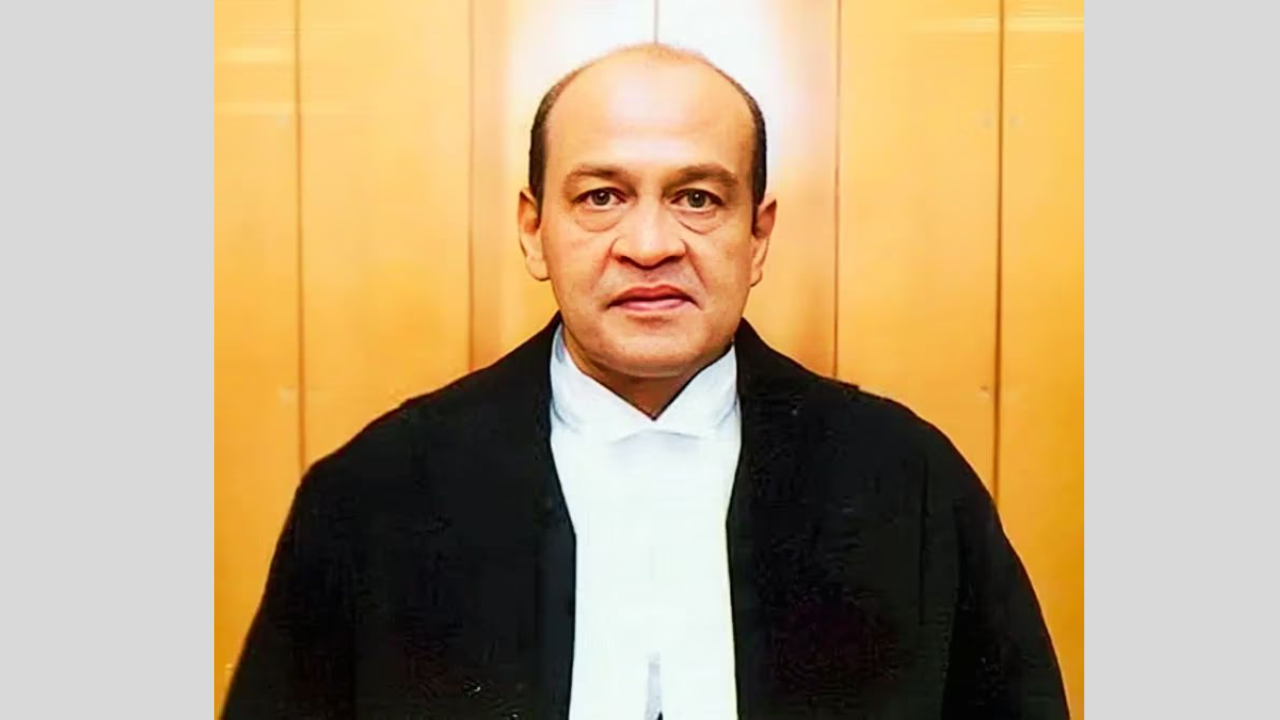 English
English

The troubles looming over Justice Yashwant Verma are not going to end. Know what will happen next for Justice Yashwant Verma in this special report of Dynamite News

Justice Yashwant Varma (Image Source: Internet)
New Delhi: The troubles of Justice Yashwant Verma, a judge of the Delhi High Court who is embroiled in a cash scandal, are increasing. A three-member committee was formed on the instructions of the Supreme Court to investigate the cash scandal involving Justice Yashwant Verma. This committee has submitted its report to the Chief Justice of the country, and based on this report, CJI Sanjiv Khanna has confirmed the allegations against Justice Verma.
The veteran journalist Mr. Manoj Tibrewal Aakash, Editor-in-Chief of Dynamite News, told in his special show that CJI has asked Justice Verma to resign from his post on the basis of the principle of natural justice. Today, we will explain the entire cash scandal that has put a judge in the dock. Along with this, we will provide a complete history of Justice Verma and outline the potential actions that could be taken against him.
Justice Yashwant Verma is originally from Uttar Pradesh. He was born on January 6, 1969, in Allahabad (now Prayagraj). He later moved to Delhi for his college studies, where he obtained a B.Com(Hons) degree from Hansraj College of Delhi University. He earned an LL.B. degree from Rewa University in Madhya Pradesh in 1992. Verma began practicing as a lawyer on August 8, 1992.
As an advocate, he practiced at the Allahabad High Court, specializing in constitutional law, industrial disputes, corporate law, taxation, environmental law, and other civil cases. He also served as a special counsel for the Allahabad High Court from 2006 to 2014. After this, he was appointed a judge at the Delhi High Court. Following his involvement in the cash scandal, he was sent back to the Allahabad High Court.
The case of the alleged burning of cash after a fire broke out at the residence of Justice Yashwant Verma, then a judge of the Delhi High Court, has now reached the in-house investigation of the Supreme Court.
The three-member committee formed to investigate the matter submitted its report to Chief Justice (CJI) Sanjiv Khanna on May 4. The committee comprised Chief Justice of the Punjab and Haryana High Court Sheel Nagu, Chief Justice of the Himachal High Court GS Sandhawalia, and Justice Anu Sivaraman of the Karnataka High Court.
The investigation began on March 25. This case dates back to the evening of March 14, when a fire broke out in Justice Verma's house. It is alleged that the fire brigade found bundles of burnt cash on the scene, which was reported to the Chief Justice of the Delhi High Court by the Delhi Police Commissioner. A video also surfaced showing burning cash. At the time, Justice Verma and his wife were not in Delhi, having traveled to Madhya Pradesh. Only his daughter and elderly mother were present in the house.
Following the incident, Justice Verma was accused of corruption. He completely rejected these allegations, claiming that a conspiracy was being hatched to implicate him. The Supreme Court formed an in-house inquiry committee on March 22 to investigate the accusations. Meanwhile, the Supreme Court also made public the preliminary report from the Delhi High Court and Justice Verma's response.
Due to the allegations, Justice Verma has been transferred back to his original posting at the Allahabad High Court, where he recently took the oath of office and secrecy. However, his judicial work has been temporarily suspended on the instructions of the CJI. The Allahabad High Court Bar Association also went on strike to protest against his transfer.
As the investigation began, Justice Verma sought legal advice from a team of senior lawyers, which included advocates Siddharth Agarwal, Arundhati Katju, Tara Narula, and Stuti Gujral. Due to the pending in-house investigation, the Supreme Court refused to hear the petition seeking the registration of an FIR against him.
CJI Sanjiv Khanna is set to retire on May 13, and he wants to complete the action in this case within his tenure. If Justice Verma does not resign, the next step could be an impeachment motion in Parliament, based on the President's recommendation. To bring the motion, the support of 100 MPs in the Lok Sabha and 50 MPs in the Rajya Sabha will be necessary. If the motion is passed by a two-thirds majority in both houses, the president can remove the judge from office.
If the investigation committee report confirms criminal conduct by Justice Verma, the CBI, Enforcement Directorate (ED), or Income Tax Department may initiate an investigation. Since he is a sitting judge, the president's permission will be required to start prosecution against him. If found guilty and removed from office through impeachment, he may be deprived of pension and other retirement benefits.